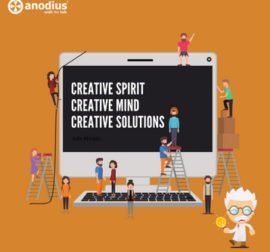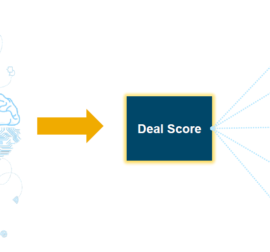 Contact us
Contact us Digital Transformation or Welcome to The New World!
People, business, and “things” are being increasingly interconnected by the digital economy, digital transformation is on the go. Existing business models are radically disturbed. How can we become an intelligent and digital company? And what are the opportunities in this era of digitization?
What do the studies monitoring Digital Transformation have to say?
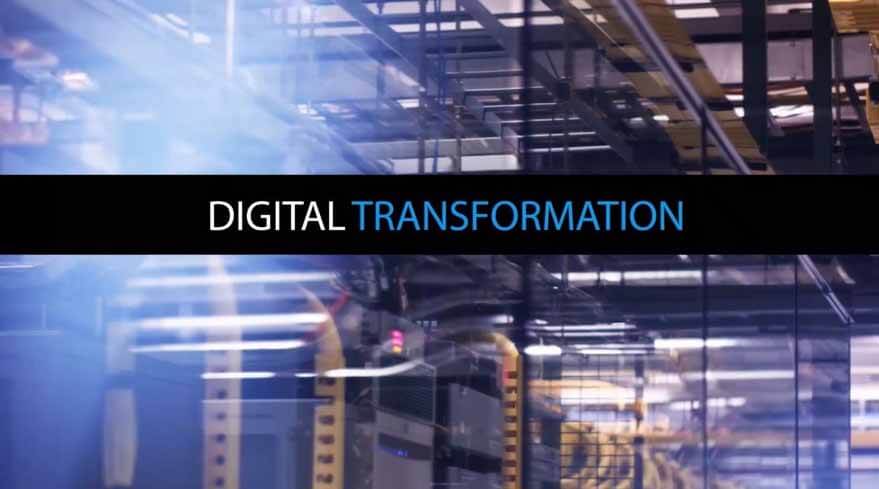
Studies exploring the course of Digital Transformation in small and medium-sized companies in 13 countries around the world have identified the following (source: SAP):
- In January 2016, the surveyed companies used an average of 3.8 solutions, in January 2017 this figure rose to 4.8. The largest growth was recorded in the internet and internet connectivity of sensors with business systems (15% increase – 23% in January 2016, 38% in January 2017) or e-commerce (13% increase – 38% in January 2016, 51% in January 2017).
- Only 8% of the companies surveyed in January 2017 said that they had Digital Transformation fully integrated, 27% are on the right track in using technology and following the digital economy, 30% are in the early stages, and recognize that they still have a lot of work to do, 22% were just starting with the process and 13% said that they had not done so much or done very little.
- Compared to the situation one year ago (January 2016), when 43% of companies reported that the Digital Transformation was fully integrated (10%) or they were on the right track (33%), at the beginning of 2017, only 35%, reduction by 8% of companies were of the same opinion. According to IDC, it is the result of a more realistic view and the ability to evaluate where the company is.
- Medium-sized companies with 500-999 employees are more interested in the long-term approach than the smaller ones. Almost half (46.5%) are convinced that active participation in the digital economy will be crucial for their survival in the following three to five years. Only a third of smaller companies have the same approach.
- The launch of digital transformation is one of the first deployed application solutions to support enterprise collaboration and solutions in the field of customer relationship management (CRM) and e-commerce. One of the three companies asked would prefer the use of the cloud over the on-premise.
- More than half of smaller companies and three-quarters of medium-sized companies use at least one cloud application.
- Cloud utilization has made digital transformation easier for smaller businesses, some of them deemed deploying of the first solution easier than expected.
- Almost three-quarters of companies (73%) that had decided to digitize said that their expectations of technology investments were filled or overcome. E.g. 86% of companies reported benefits of easy access to information, 81% greater flexibility for employees, 78% improvement in work productivity and customer service, 74% increase in sales, and 72% increase in customer loyalty.
Why Digital Transformation?
Digital transformations have become an indispensable condition for all companies, regardless of size or industry. Customer expectations today require companies to keep up-to-date if they want to keep up with requirements. Flexibility and ability to innovate become new criteria and maintaining competitiveness means identifying the right business solutions that can grow along with your business.
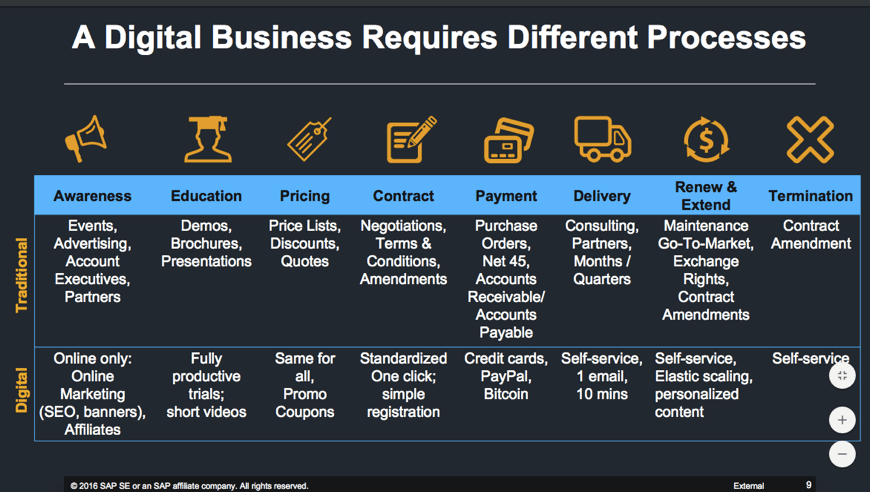
Digital business is built on new computing infrastructure – mobile, cloud, Big Data, and analytical technologies. Internet of Things (IoT), Advances in Machine Learning, and innovations are becoming increasingly widespread today. These technologies provide companies with the ability to radically change business models and create new products and services.
Digital Transformation extends the impact on business performance through improved customer engagement, supply chain efficiency, and financial information.
The availability of real-time information is becoming one of the basic requirements. Even though, only a few organizations use them effectively.
Five Pillars of Digital Transformation
SAP defines five pillars of digitization and has developed a complete portfolio of solutions to meet the needs of the digital business.
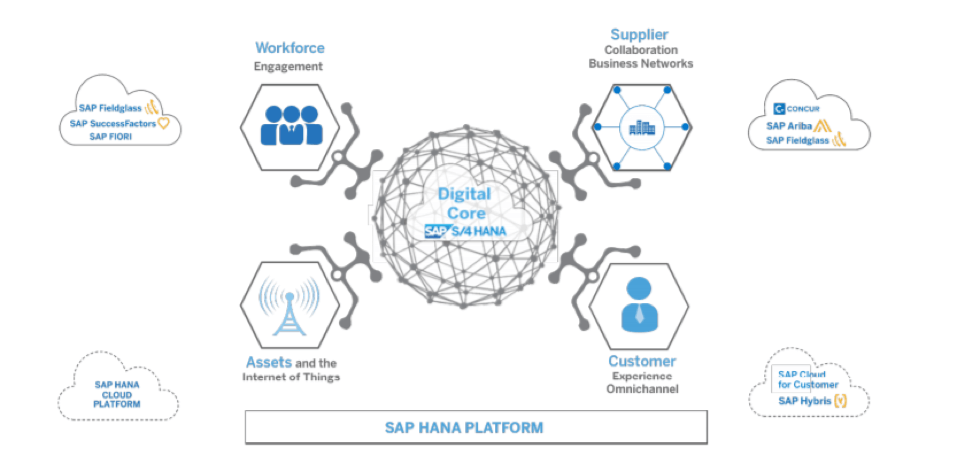
- Companies to speed up business processes, provide more Business Intelligence, and simplify their IT environment.
- Real-time decision-making on the whole business model.
- Customers to analyze in real-time what is happening in their business.
- Remove the need to keep separate older systems and stored data, so companies can make better business decisions.
- Instantly and proactively trade, analyze and predict in an increasingly unpredictable world.
SAP S / 4HANA is a versatile digital platform to meet today’s business requirements.
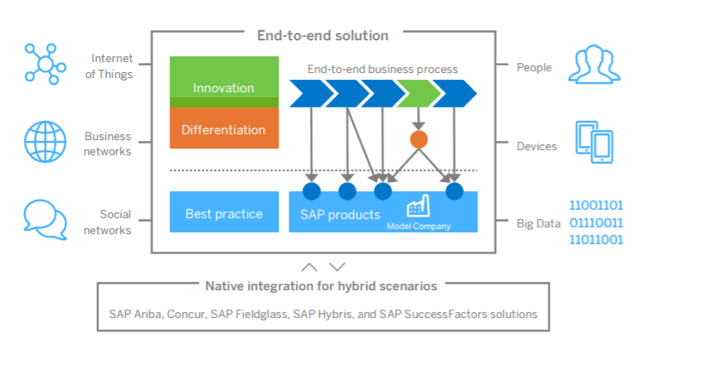
However, innovations are not just new features. SAP is an innovation aimed at solving real customer problems. A new solution helps to reduce operating costs.
At the software level, multiple database containers allow you to run many isolated databases in one SAP HANA system. It also improves the overall performance of SAP HANA with better workload balancing by using active replication.
You can now remove OLAP analytic questions from the primary SAP HANA system to the secondary system. The result? Increased availability and performance and a higher return on investment for SAP HANA hardware in standby mode.
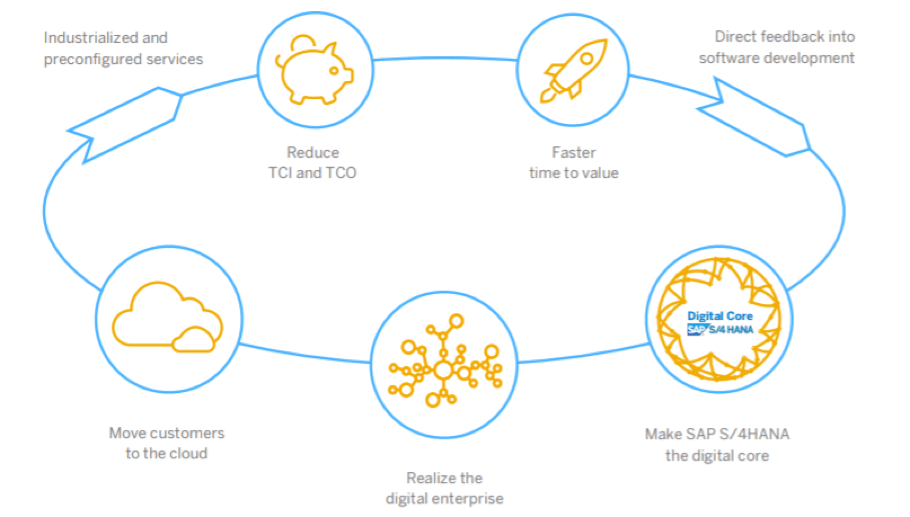
What SAP HANA 2 SPS02 Comes With?
- Increased automation and better business continuity with improved system load management and replication
- Improved and simplified data modeling, encryption, and user group management
- Improved analysis of SAP HANA with Google TensorFlow for machine learning and improvement in text and graph analysis
- Enhanced application development flexibility with a new GO language driver, enhanced SQL / SQL Script, and SAP HANA Express Edition support for intelligent data integration
- Possibility to use cheaper disk storage for historical data within one SAP HANA database. Older data is moved to secondary storages to free up more SAP HANA work memory.
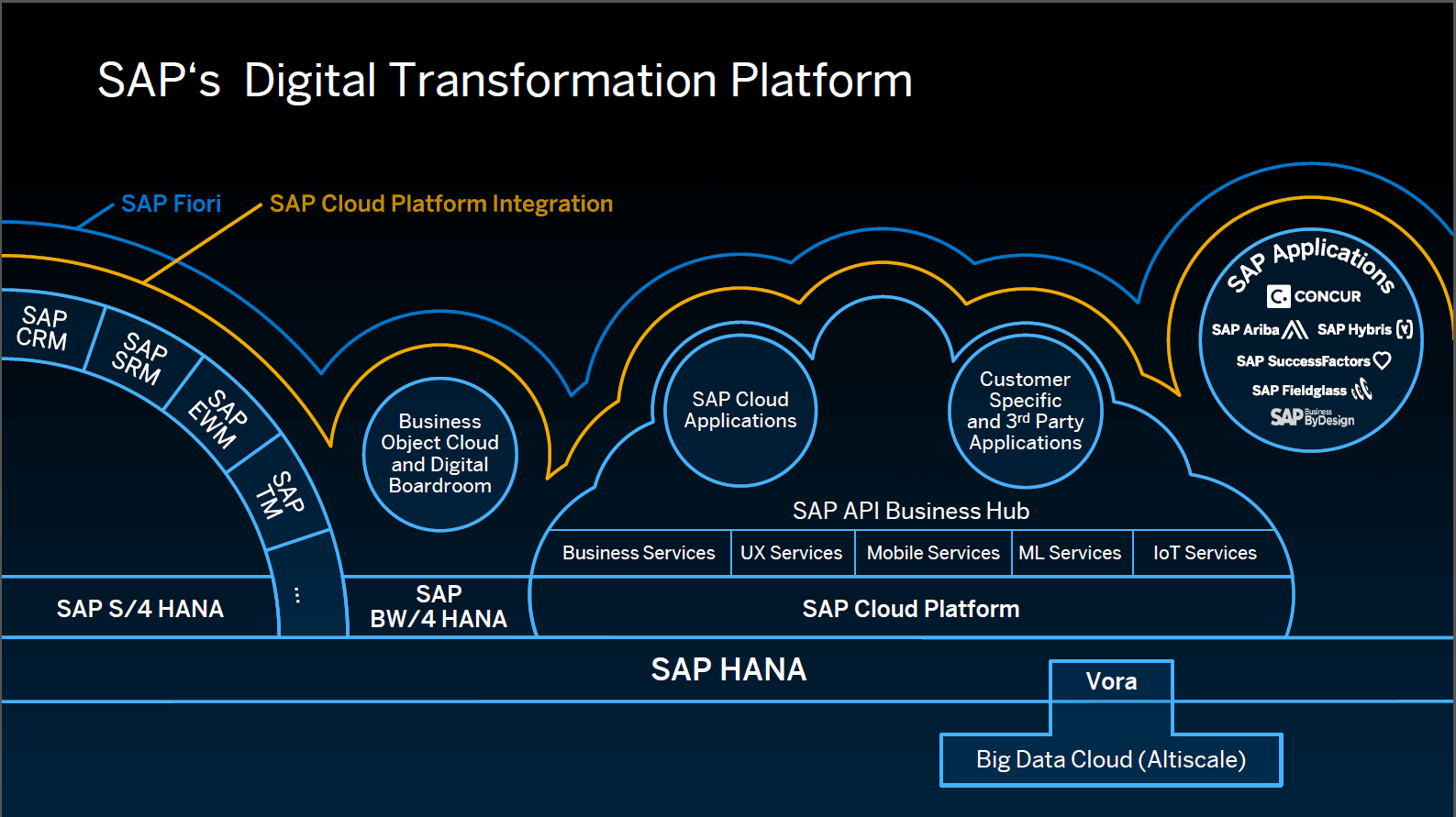
In other words, SAP HANA 2 SPS02 is ideal to support Digital Transformation in organizations that want to use the latest technology to run their business
Lukáš Endal, CRM Consultant
